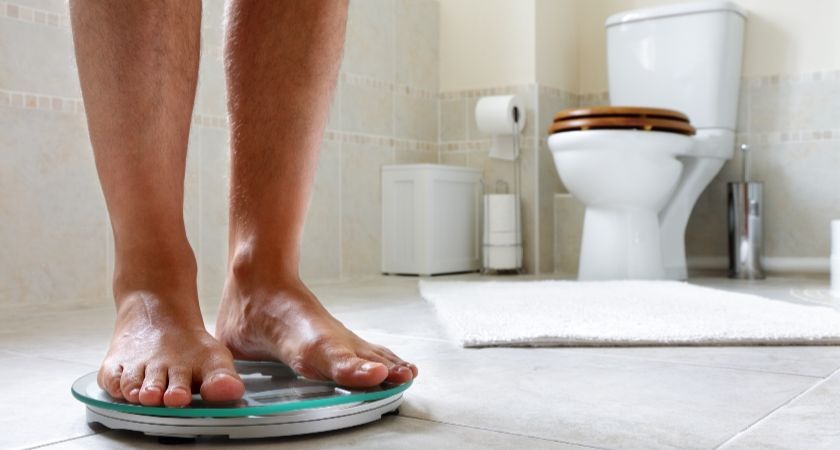YOUR WEIGHT can be a sensitive subject at the best of times, with a morning trip to the bathroom scales often proving to be a depressing experience.
'That can't be right!' you tell yourself, as the numbers whizz up and up. 'There must be a mistake, I've been good all week.'
More often than not, the reality is there in black and white - but, every now and then, your scales could be lying to you.
That's according to Roger Kemp, a professor of engineering at Lancaster University, who revealed as much in an interview with The Daily Mail.
It's all down to the fact that standard bathroom scales - both mechanical and electronic - are based on a basic invention dating back more than 200 years.
British inventor Richard Salter was the first man to making spring scales in Britain.
Standard mechanical scales still operate using the same system. They contain a spring, attached to a dial by levers and a pulley.
When you step on the scales, the spring compresses, depending on your weight, with the dial moving accordingly.
According to Professor Kemp, this is where the problems begin.
"Scales contain lots of little mechanisms, which can easily get bent and throw the measurement out," he said.
The fact these scales are mass produced also means "you can't guarantee you're buying a precision machine," according to Professor Kemp.

Despite the fact mechanical scales are more likely to deteriorate as a result of wear and tear, electronic scales are far from perfect, the academic warned.
Though it's easier to test and calibrate digital scales, they still rely on the same flexible beam, which bends when you step on the scales.
The only difference is that the signal from the strain gauges glued to the beam is converted by built-in electronics.
Despite this, Professor Kemp was keen to stress that "as long as the strain gauges stay stuck to the flexible beam" a set of electronic scales will behave "fairly consistently throughout its life."
The warning follows the publication of research from BMC Public Health which previously suggested digital home bathroom scales provided sufficient accuracy and consistency when it came to assessing weight.
There's still some margin for error though.

